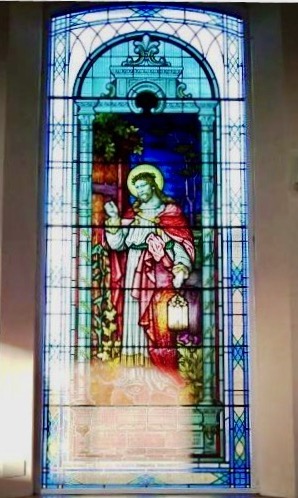
When Thomas Watson was born in 1869 in a tiny white painted cottage on the south side of Beeston Town Street his childhood would have been traditional and as secure as it could have been at this period of time.
There were five woollen mills in the district, two dye works, one leather works, and Robinson’s flour mill at Millshaw which was powered by a tremendous waterwheel.
The White Hart and Punchbowl brewed their own beer as did many farms and residents, but ‘Herb Beer’ was a firm favourite at a 1d (½p) a quart (1 litre). Spa water carried from Holbeck and the spring on Windmill Hill was carried round and sold for 1d (½p) per bucket for use by the connoisseur tea maker.
As a boy, watching the two Blacksmiths would have occupied a lot of Tom’s time, and the arrival of the Beeston Feast transformed the village into a miniature ‘Butlins’, with Town Street bedecked with streamers and decorations.

The donkeys were all decorated out in gay finery in preparation for the races that were run between the White Hart and the Railway Inn. Flat races, skipping, Knur and Spell, pigeon flying, kite flying, shuttlecock, battledore, quoits, boxing – you name it and it happened at the Beeston Feast.
The rest of the year would be punctuated by an occasional visit to Hamilton’s Panorama or the ‘Rhodes Show’, watching with undying fascination Uncle Tom’s Cabin, Maria Marten, or the Murder in the Red Barn. At Whitsuntide there was the ‘Whit Walk’ and Christmas of course was the time to sing carols around the village terminating at Beeston Hall where the owner handed out the traditional pennies and chocolates to the choir.
The time came for Tom to start work, this would probably mean either in agriculture or mining both of which flourished in Beeston. However, he could not seem to settle in any job and by the time he was 26 he seems to have had about twenty different jobs.
He even tried his hand as a blacksmith at the forge where the Beeston bus now terminates and another was that of a Page Boy at the ‘Old Grand Restaurant’ in Boar Lane, Leeds. By 1895 he had amassed enough money to pay for his passage to South Africa and on this journey he was accompanied by one ‘Hooker’ Addiman. The whole village turned out to see them away, and in a letter quoting the experience many years later he wrote: “We were given a reight royal send off in Wilk’s Waggonette”.
Tom arrived in Durban (Natal) in South Africa without a penny to his name, but over the years he became a very successful Hotelier and when he died in 1962 aged 92 he left a fortune of £140,000.
Tom Watson once described himself as being “weighed down with money” but he never forgot his Beeston roots and he distributed thousands of pounds here during his lifetime.

In 1936 he gave Beeston Methodist Church a window showing Holman Hunt’s picture “The Light of the World” as the centrepiece. The window was dedicated to his parents and placed near it was a plaque in memory of Mr. Watson’s sister who was accidentally killed at Beeston Railway Station during a Whitsuntide outing. When Beeston Methodist Church at the top of Wesley Street closed, the window was moved to St Andrew’s church on Old Lane.
In 1949 he donated £1,000 to the boys of his old school, Beeston County Primary, the accrued interest to be dispersed each year by the Trustees amongst the pupils in the form of initiative awards above and beyond the provisions of the Local Education Authority.
He gave £2,000 towards the Veterans Shelter (Watsonian Pavilion) in Cross Flatts Park and which he opened in 1952.
Tom Watson’s last act of charity in Beeston was to donate £4,000 towards the conversion of part of the old graveyard at St Mary’s Church into a Garden of Rest though this site is now occupied by the Church Hall.
A new window was commissioned by Mr W West, Hon Treasurer of the Durban Homes for Men, one of the South African Charities supported by Tom Watson. The first inquiry into making an exact replica of the Methodist Chapel window in Beeston was put to Elliff Brothers glass works in Mabgate, who accepted the commission and to ensure it was accurate in every detail it was photographed in colour on site at the Beeston Chapel.
Nothing more was heard of the project for some years then a month after the death of Thomas Watson Elliff Brothers were asked to carry out the work on the window. This new window measured 91 inches by 55¾ inches and when it was ready it was despatched for installation in a Church in Durban. The explanation offered for the initial delay was the South African Government had ‘frozen’ the money and had not given permission for the import of the window for ten years.
Thomas Watson’s ashes were brought back from South Africa and were scattered in the Garden of Rest at St. Mary’s Church.
All his gifts to the village totalled well over £7,000 giving Beeston cause to remember him as an all time ‘Grandfather of Beeston’ – a village tradition of passing on this title to the oldest male inhabitant.
Main photo: Thomas Watson visits Beeston County Primary School



Thankyou for this wonderful information.
My son was awarded the last Watson award at Beeston Primary schoolaround 1988/89.
I still have it to this day.